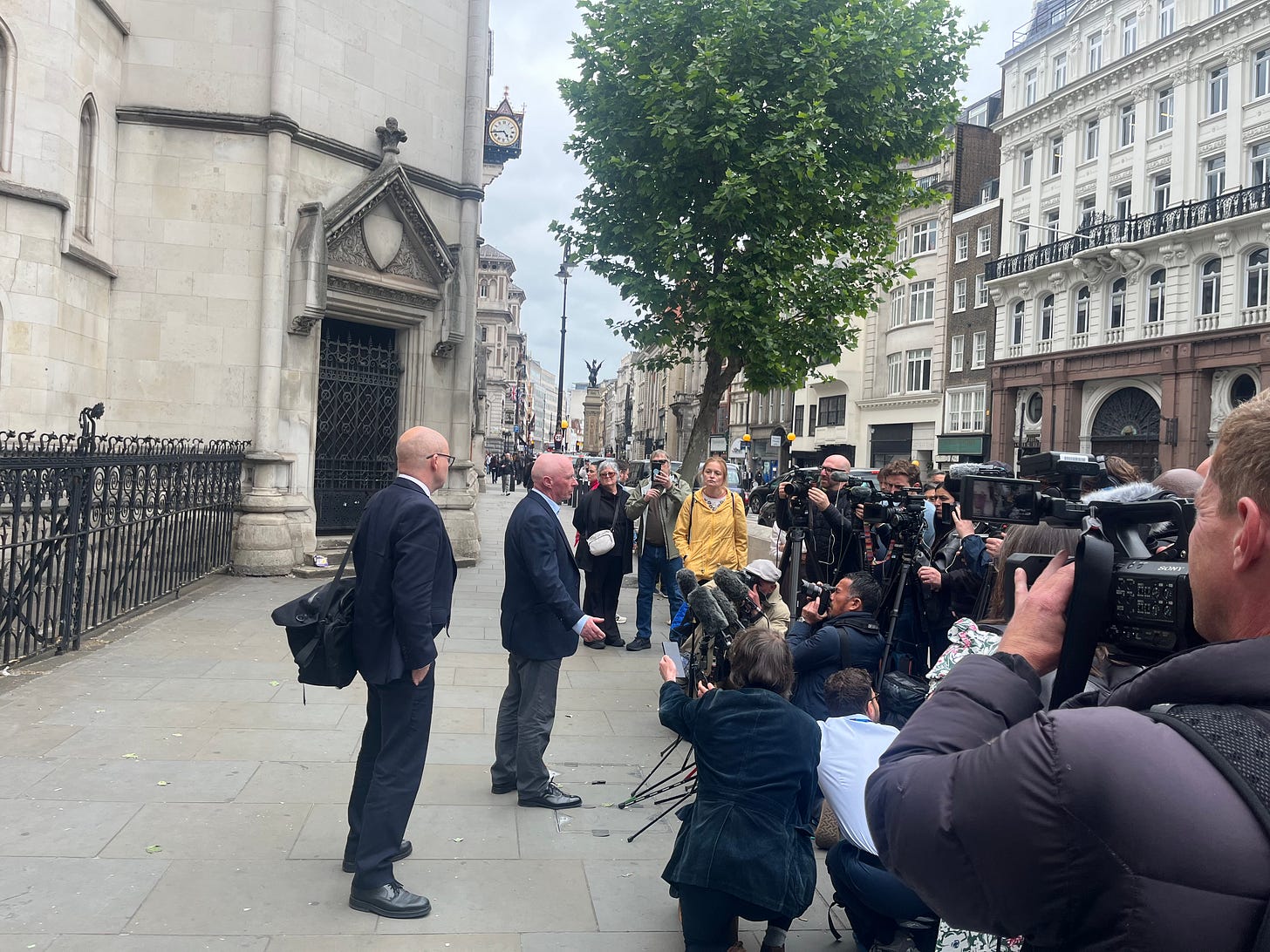... And Justice for All?
Further thoughts on Lucy Connolly, Gary Lineker and Kneecap
Earlier this week I wrote about the imprisonment of Lucy Connolly for a tweet posted after the Southport murders. Since her appeal failed, a small number of politicians have called for the childminder’s release, including the five MPs who signed an early daily motion and, most recently, Boris Johnson (a father once again - congratulations, if you’re reading). For now, though, Connolly remains in jail, and some people feel that justice has been done.
I try to understand what motivates people with strong opposing opinions, not often very successfully, and I admit to finding the arguments made by politicians and journalists (and social media users) justifying Connolly’s imprisonment hard. At the most basic level, some seem to be arguing that she is bad and racist, and therefore deserves it, especially as she tweeted in a middle of a riot (she didn’t, and actually condemned the riots). That’s the most fundamental block to a culture of free speech, but it’s human instinct.
Others point out that she admitted to the crime by pleading guilty, knowing full well that she was denied bail and so faced months inside before her trial. The issue here is why the Crown Prosecution Service decided to proceed in bringing a serious charge, one which a judge had no choice but to punish with a substantial sentence.
Why, when this decision was made, was she refused bail, when otherwise she almost certainly would have pleaded not guilty, knowing that a jury would have thrown the case out. No jury in England is going to send someone down for a three-year stretch (in reality a year) for a tweet written in anger; the authorities knew this, so who made these decisions and why? That feels like a genuine question of public interest.
Connolly was ‘jailed for a tweet’, but that is a slightly misleading argument, as there are clearly cases where a jail term for a tweet would be appropriate; if I tweeted that someone should kill a certain person, and mentioned their address, or alluded to their family, then I would rightfully be ‘jailed for a tweet’.



